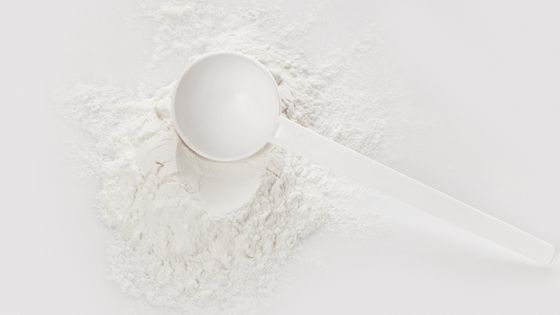Can Creatine Cause Acne? The Truth!

Can creatine cause acne? A lot of people are wondering if creatine can cause it. There is a lot of confusion about whether or not creatine can cause acne.
Here's what you need to know about the potential link between creatine and acne.
- Can creatine cause acne?
- What is creatine, and what does it do?
- What are the side effects of creatine?
- Alternatives to taking creatine
- Precautions to take if you decide to take creatine
- When is the best time to take creatine for maximum results?
- Who should not take creatine supplements
- What are the risks associated with taking too much creatine?
Can creatine cause acne?
No, creatine does not cause acne. It is one of the most studied and safest supplements on the market. Any claims to the contrary are unfounded.
However, genetics may make some people prone to acne breakouts.
What is creatine, and what does it do?
Creatine is a nitrogenous organic acid that occurs naturally in vertebrates. Its primary function is to facilitate the storage and transport of energy in muscles.
Creatine can be synthesized in the liver, pancreas, and kidneys and is also found in foods such as red meat and fish.
When taken as a supplement, creatine has been shown to improve exercise performance and increase muscle mass.
It is thought to work by increasing the availability of phosphate groups needed for energy production during exercise.
Creatine supplementation is safe for most people, but it can cause gastrointestinal distress and muscle cramping in some individuals.
Creatine is an effective supplement for improving exercise performance and increasing muscle mass.
What are the side effects of creatine?
According to the Mayo Clinic, the most common side effect of creatine is weight gain. That is because creatine causes the body to hold on to water. In addition, some people may experience gastrointestinal distress, such as stomach cramps and diarrhea.
However, these side effects are typically mild and go away after taking creatine for a few days. More severe side effects are rare, but they can include liver damage and kidney problems.
As a result, it is essential to talk to a doctor before taking creatine, especially if you have a history of liver or kidney disease.
Alternatives to taking creatine
If you are concerned about the side effects of creatine, there are a few alternatives. One option is to eat foods high in creatine, such as red meat and fish.
Another alternative is to take beta-alanine supplements, which have been shown to improve exercise performance without the side effects of creatine.
Ultimately, whether or not you take creatine is a personal decision. If you decide to take it, follow the recommended dosage and talk to your doctor if you have any concerns.
Precautions to take if you decide to take creatine
While creatine is generally considered safe, there are a few precautions that you should take if you choose to take it.
- First, drink plenty of water, as creatine can cause dehydration.
- Second, avoid taking too much creatine at once, which can lead to gastrointestinal distress.
- Finally, listen to your body and stop taking creatine if you experience adverse effects.
By following these simple guidelines, you can help ensure that you enjoy the benefits of creatine without any unwanted side effects.
When is the best time to take creatine for maximum results?
Creatine is a supplement shown to improve exercise performance and increase muscle mass. It is typically taken in powder form and mixed with water or juice.
The best time to take creatine is before or after exercise, except taking it before bedtime.
That is because creatine may interfere with sleep by causing restless leg syndrome.
Taking it before bedtime may also cause stomach upset. For maximum results, taking creatine first thing in the morning on an empty stomach or after working out when your muscles are primed for growth is recommended.
Who should not take creatine supplements
Creatine supplements are popular for athletes and bodybuilders looking to improve their performance.
However, some people should not take creatine supplements. These include people with kidney problems, high blood pressure, or diabetes.
Additionally, pregnant women and children should avoid taking creatine supplements.
If you have any concerns about whether or not you should take creatine supplements, be sure to speak with your doctor or a fitness expert.
What are the risks associated with taking too much creatine?
While creatine is a safe and effective supplement for many people, there are some risks associated with taking too much.
Creatine can cause bloating, diarrhea, and cramping. It can also lead to weight gain, dehydration, and heat intolerance. In rare cases, it can even cause kidney damage.
For these reasons, taking the recommended amount of creatine is essential. However, if you experience any adverse effects, stop taking the supplement and consult your doctor.
DISCLAIMER: buildyourbody.org does not provide medical advice, examination, or diagnosis.
Medically reviewed and approved by Nataniel Josue M D.
